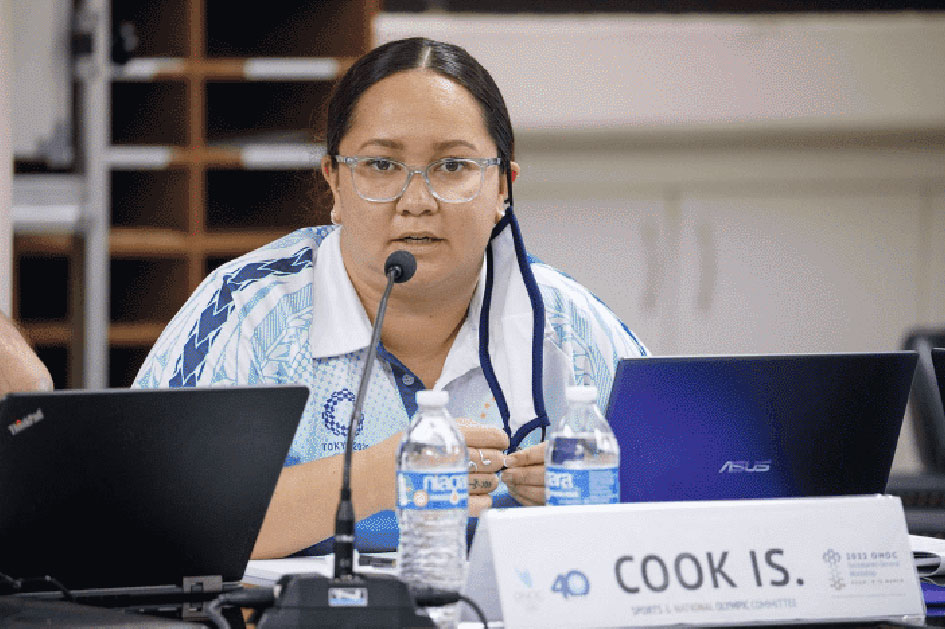Website Guide HERE

X

Sport leaders and administrators of fifteen National Olympic Committees (NOCs) in Oceania completed capacity building on good governance in the sporting sector a week ago in Guam.
It was led by the Oceania Sport Education Programme (OSEP), the flagship community-based sport education programme home-grown in the Pacific Islands and recognised by the Olympic Movement as a model for application in marginal settings. OSEP belongs to the Oceania National Olympic Committees (ONOC) which is one of five Continental Associations under the International Olympic Committee (IOC).
Meli Cavu, Chief Sport Education Programme Officer of ONOC and Head of OSEP said, “The capacity building was made possible through IOC funding under the Olympic Solidarity Programme.
“The workshop used reflection, knowledge sharing, and a planning approach in order to improve NOCs’ ability to access and use Olympic Solidarity grants and opportunities better in this new quadrennium, which runs from 2021 to 2024 – and governance is critical to that.”
Cavu said, “OSEP last ran training at the ONOC Secretaries-General Workshop in 2017 and it is best positioned to continue because historically, we have designed an evolving set of courses based on practical learnings from the ground – based on the challenges Pacific islands NOCs and national federations face from 2007 onward.
“We have drawn from our current OSEP courses which cover sport administration and management at community, developmental, and national level – with the last applied to regional level also.
“OSEP as a programme is the training and development arm of ONOC and it’s only appropriate that it both is able to demonstrate strength in its courses and meet the needs of its members because that’s what we’re here for.”

Cavu further stated that evidence of OSEP’s development and evolution was also demonstrated in its ability to meet the challenge of capacity building Sport Development Officers (SDOs), Sport Education Officers (SEOs), and Finance Officers (FOs) as part of the Guam series – a first for the ONOC Secretaries-General Workshop.
Cavu said, “It was important as these key personnel will provide assurances to the Secretary-General in three key areas of finance, sport development, and sport education; this was a recommendation to ONOC that came out of the 2017 Secretaries-General Workshop.
“Our member NOCs could not afford the three key personnel as most had a single funding source, Olympic Solidarity, and up to 2017, ONOC only covered for the Sport Development Officer, which today is an annual grant of USD20,000 per NOC.
“ONOC listened, believed the value each role would bring to an NOC, and made a decision to budget for all three personnel under its ‘Regional Development Fund’ initiative – and this amounts to USD60,000 per year, USD 20,000 for each role, for four consecutive years that is allocated to each NOC.
“The feedback we have received from NOCs for inviting the three key personnel have been very positive as these positions contribute to the effectiveness of sport development, sport education, and to finance compliance and reporting.”

Cavu added, “With the theme of “Enabling Effective Leadership in Oceania”, the workshop also looked at all three key personnel as leaders, who would in turn provide a good support system for the person who ultimately is in charge of the NOC operations: the Secretary-General.
“ONOC believes that each organisation should do its best to enable effective leadership and believed that inviting all three key personnel to the Secretaries-General workshop, as well as including them in a number of plenary sessions with their Secretaries-General, is a step in that direction.”
The ONOC 2022 Secretaries-General Workshop was held in Guam in a hybrid or blended format comprising both in-person and online participation. It was followed by a trip to the Northern Marianas to visit sporting venues and meet the Organising Committee of the SAIPAN 2022 Pacific Mini Games.
-
For more information, please visit these links:
On the Oceania Sport Education Programme
On the Oceania National Olympic Committees
On the Guam National Olympic Committee
On the ONOC General Assembly
On the ONOC Olympic Solidarity Programme
###
About ONOC
Established in 1981, the Oceania National Olympic Committees (ONOC) is one of five Continental Associations. It looks after the interests of 17 member nations in the Oceania Region, including Australia and New Zealand as well as seven associate members.
###
For more information, please contact;
Sitiveni Tawakevou
Chief Communications Officer (Acting)
sitiveni@oceanianoc.org
###
Digital Channels
For up-to-the-minute information on ONOC and regular updates, please follow us on Facebook, Twitter, Instagram LinkedIn and YouTube.